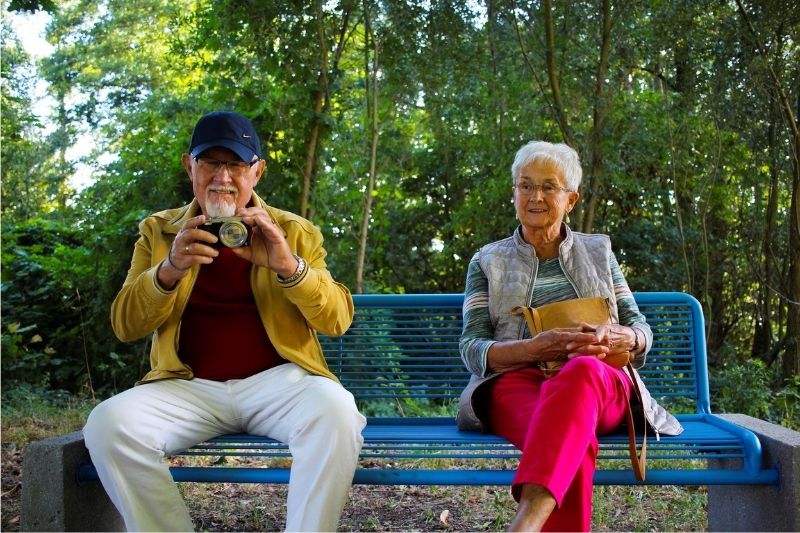No products in the cart.
How to Stay Connected with Long-Distance Grandparents

Living away from your family can be difficult, especially when you’d like your kids to have a close relationship with their grandparents. However, there are numerous ways to stay connected to long-distance grandparents, even if you can’t make a trip to visit them this summer. With creativity, careful scheduling, and modern technology, your kids can stay in touch with their grandparents and build a close emotional connection. Use these tips to start sharing special moments.
Send Snail Mail
Even if your parents aren’t comfortable using a computer, tablet, or smartphone, sending mail through the USPS is something that they’ll appreciate and understand. Consider sending your kids drawings, letters, and art to their grandparents through the mail. They’ll have fun mail arriving regularly to look forward to, and your children will have an outlet for their creativity. They can learn about the things their grandparents like and enjoy, and they’re sure to enjoy creating art just to mail off to their loved ones.
Make Video Calls
Utilize a video conferencing software program like Zoom, Messenger, or Skype to help your children video call their grandparents. They can talk about the activities that they’re enjoying each week, and your parents can share the things that they’re doing around the house. They may even enjoy reading stories, showing off pets, or making art together over video calls. These calls can be a great way for family members to bond and share special time together.
Video a Home Tour
If you live a long distance from your children’s grandparents, they may not have the opportunity to see where they live. Elder adults can live in a variety of housing situations, with 51% of care recipients living on their own, 29% living with a family member as a caregiver, and 4% living in an assisted living facility or nursing home. Your children may enjoy taking their grandparents on a video tour of their home, showing them where they live, what their bedroom looks like, showing off their pets, and more.
Develop a Shared Hobby
As your parents age, they may spend more time relaxing and working on personal hobbies. Medicare is a national program that helps cover healthcare expenses for those 65 and older, and those with disabilities and illnesses. Soothing hobbies are good for easing the symptoms brought on by age and chronic illness and can help elderly individuals pass the time. Consider finding an activity that your children can enjoy at a distance with your parents, such as art, birdwatching, or writing letters to one another. This time can help keep your parents more active as they age, and is a great way to keep your children amused.
Play Games Online
Worldwide, there are almost 2 billion websites functioning simultaneously each day. Consider finding one or more websites that offer online games and teaching your parents and children to play games together online. Whether you opt for something simple like checkers or a more advanced game through a website like Steam, you can set up a way for them to relax and enjoy time together. Many online games are easy to learn and fun to play, making them a great way for family members to de-stress and spend time together. Ask your parents what types of games they think they’d enjoy — word games, math games, puzzle games, or something a bit more involved. This trend isn’t going away anytime soon, so it makes sense to learn how to enjoy it.
You can still spend time together as a family even when your loved ones live all over the country, or even the globe. Spend some time planning methods for your kids to socialize with their long-distance grandparents this summer so that everyone can relax and spend time learning about one another. The internet makes this process easier than ever before so that your family can be as close-knit as possible.















Leave a Reply